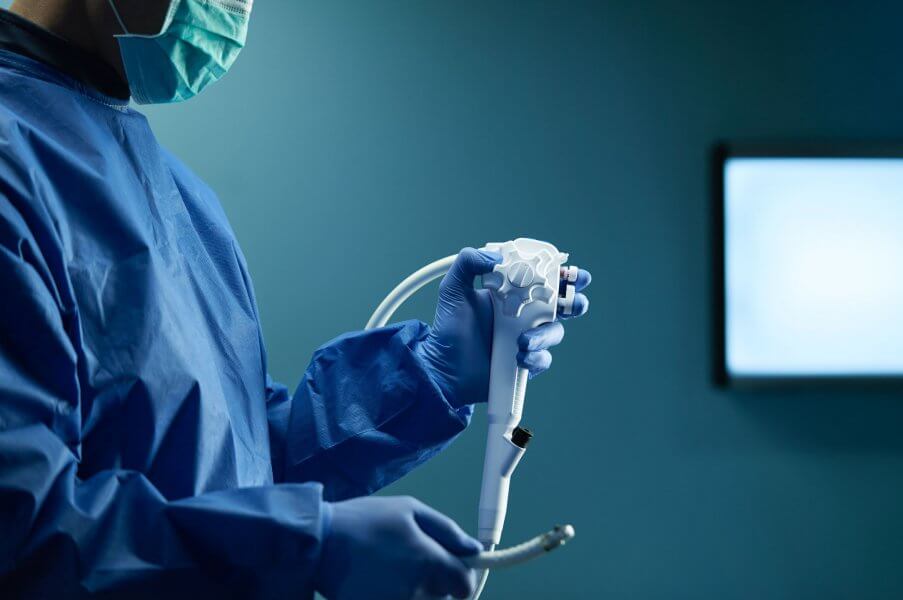
A new meta-analysis of infection rate data from three countries questions U.S. Food and Drug Administration findings of contamination rates for duodenoscopes used in endoscopic retrograde cholangiopancreatography (ERCP).
Currently, the FDA estimates a 9 percent contamination rate for reprocessed, patient-ready duodenoscopes. That percentage is based on a preliminary FDA analysis of postmarket surveillance studies for duodenoscopes and manufacturers. The final study has yet to be released.
A newly published abstract in Gastroenterology found contamination rates to be much higher – an estimated 15.34 percent.
Researchers from Ambu A/S in Ballerup, Denmark, analyzed six studies from three countries to determine a pooled 15.34 percent contamination rate. The six studies included 348 contaminated duodenoscopes from 2,560 samples, according to the abstract.
All six studies included microbiological culture sampling from patient-ready duodenoscopes. The researchers did not include studies with fewer than 10 samples.
“The result is consistent with contamination rates of other endoscopes (e.g., bronchoscopes, gastroscopes, and colonoscopes), but higher than the interim results posted by FDA,” the authors wrote in the abstract. “More high-evidence studies should be conducted to address issues with contaminated reusable duodenoscopes potentially leading to cross-infections and patient harm following ERCP.”
The authors intended to present the findings of their study during the 2020 Digestive Disease Week. Organizers canceled the 2020 gathering of gastroenterologists due to the COVID-19 pandemic. All but one author is employed by Ambu A/S and disclosed conflicts of interest; Ambu specializes in manufacturing single-use medical devices, including endoscopes.
Duodenoscopes used for ERCP have come under increased scrutiny in recent years due to heightened media coverage around infections. In addition, one in five FDA Medical Device Safety Communications since 2015 have been related to endoscopes, according to the abstract.
Patient infections from contaminated duodenoscopes are rare, but cases do happen. Some outbreaks have included multidrug-resistant bacteria.
This is not the first study to analyze the FDA preliminary findings. A study published in January 2020 found a 12 percent contamination rate for patient-ready duodenoscopes.
Ambu health economist Sara Larsen, the study’s lead author, is available on Twitter, @araSL13, to answer questions about the analysis.
Ambu single-use bronchoscopes have been on the market since 2009. The company will launch a single-use duodenoscope in 2020. It's planning to develop a single-use colonoscope and gastroscope in 2021 and 2022, respectively.


